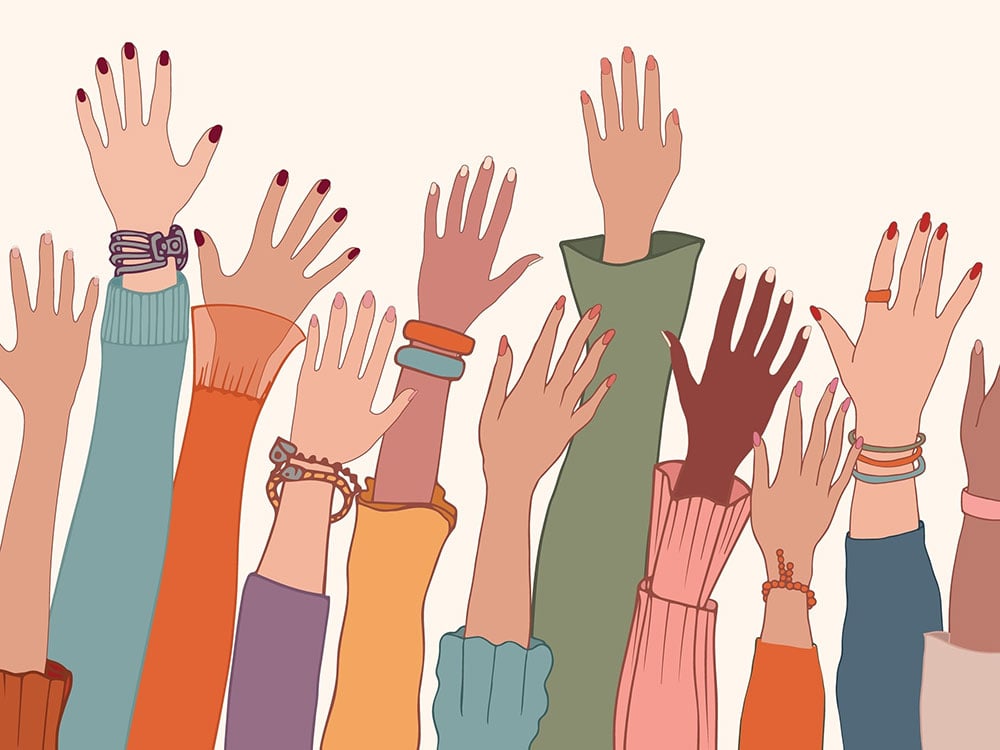What lessons did Alberta’s election deliver to the rest of Canada about representative democracy?
The outcome is a good news, bad news story. Women’s share of the seats increased from 32 to 38 per cent. But the governing caucus actually lost women; the increase in representation rests entirely with the NDP Opposition whose caucus is now 58 per cent women, in contrast to the UCP’s 22 per cent.
The result reminds us what other research has shown: voters are as likely to vote for women as they are for men — when parties run them.
But not all do. And that means that whether or not women exert meaningful influence in legislatures and Parliament depends in large part on the partisan stripe of who holds power.
This is a problem. Because women’s lives differ from men’s in myriad ways. And if women aren’t present to influence the formation of policies and spending priorities to reflect their realities, it’s impossible to ensure that they will.
British Columbia provides an instructive case study. Since 2019, the B.C. government has been providing funds to ensure girls and women can access free tampons and pads in a bid to end “period poverty.”
Then, earlier this spring, the province made doctor-prescribed IUDs, morning-after pills and birth control pills available to B.C. citizens free-of-charge.
Menstrual products and contraception are — like toilet paper, soap and water — essentials of life for millions of Canadians. And although we don’t often hear about the challenges some women face in accessing tampons or birth control, the truth is, if you’re living at or below the poverty line, you may be choosing between rent and preventing pregnancy, between fresh produce and sanitary pads.
It’s not a coincidence that these reproductive health measures were introduced in B.C. Because unlike almost every other government in Canada, the province’s governing party actually boasts a slight majority of women MLAs.
This is what a balance of power delivers: a world in which women’s experiences and insights inform policies and impact spending.
Representation is fundamental to democracy, and Canadians have always recognized that. It’s why Quebec’s 22 per cent of the population is matched by 22 per cent of the seats in Ottawa. It’s why every prime minister in history has ensured that, regardless of their party’s geographic base, prairie and Atlantic provinces have a voice in cabinet.
But why is geography the sole representation default?
Many other countries have evolved from this approach and prioritized meaningful change to ensure that the 50 per cent of the population who give birth to everyone are equally represented in the halls of power.
Informed Opinions in collaboration with political scientists who specialize in comparative politics reviewed the paths to parity they pursued. Here’s what we learned:
- Some recognized early on the critical benefits that flow from gender equality and started advancing women’s access to power decades ago. As a result, northern European nations like Iceland, Sweden and Norway have all achieved more than 45-per-cent women’s representation.
- Others brought in parity laws or constitutional reforms and imposed sanctions on political parties that don’t comply. Mexico, for one, rewrote its constitution, and now fully half of its legislators are women.
- Still other countries passed laws requiring all political parties to apply gender quotas when they select candidates. Some have financial penalties, others disqualify those that fail to comply. Costa Rica and Spain both follow this approach.
- Finally, some countries, New Zealand included, have reformed their electoral systems abandoning first-past-the-post for alternatives that have a demonstrated impact on ensuring the diversity of the population is reflected more broadly — and not just in terms of gender.
Canada, in contrast, has voluntary quotas. These acknowledge that gender parity is a worthwhile goal but let parties who don’t care much off the hook.
Alberta’s election outcome reminds us that parties play a critical role in deliberately balancing their candidate pools to make sure women have a voice in the policy, program and spending decisions governments make. But relying only on parties’ commitment to doing this is a risky default other countries have bolstered with more robust measures. ![]()
Read more: Rights + Justice, Politics, Alberta, Gender + Sexuality

















Tyee Commenting Guidelines
Comments that violate guidelines risk being deleted, and violations may result in a temporary or permanent user ban. Maintain the spirit of good conversation to stay in the discussion and be patient with moderators. Comments are reviewed regularly but not in real time.
Do:
Do not: